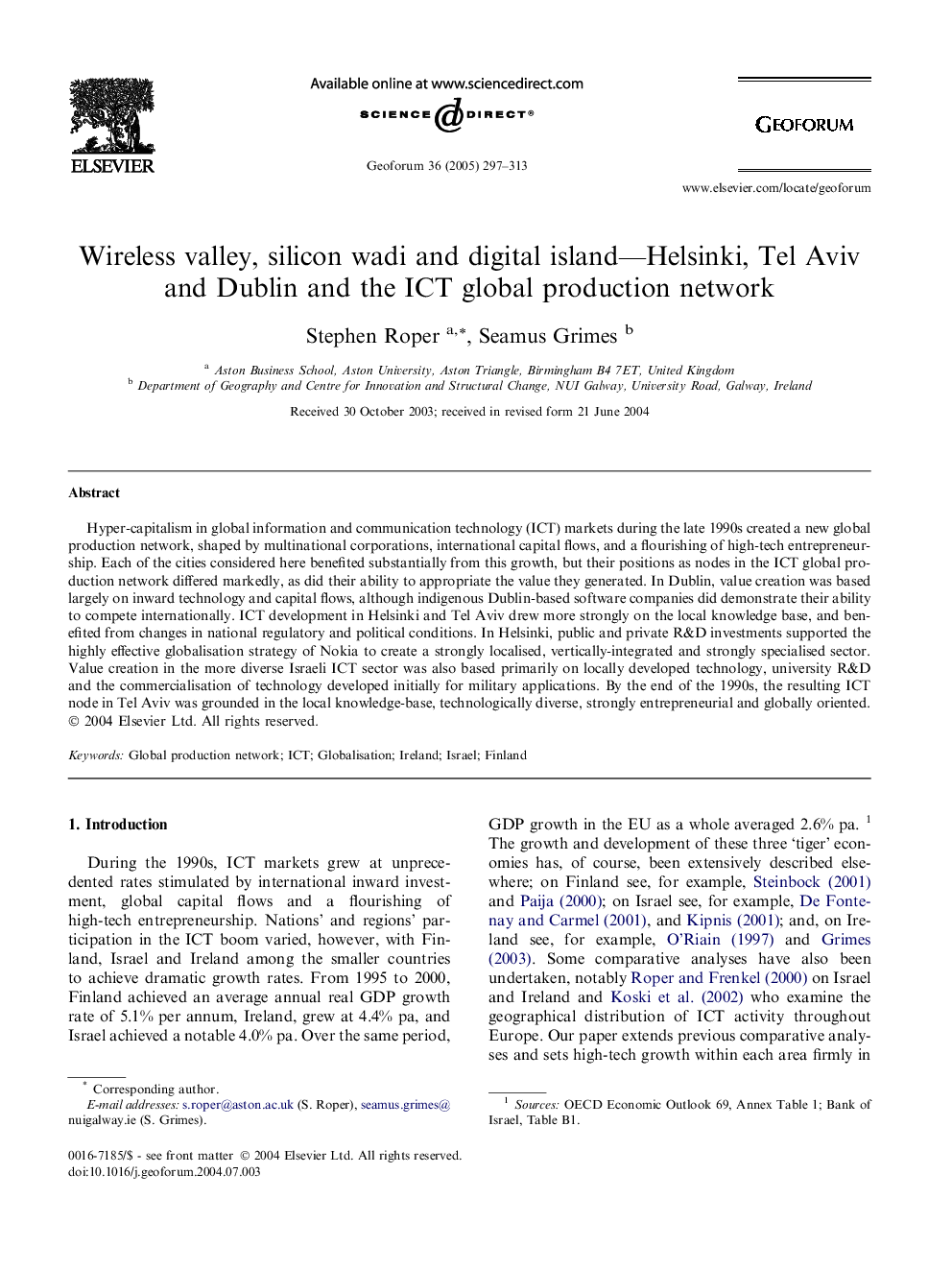| Article ID | Journal | Published Year | Pages | File Type |
|---|---|---|---|---|
| 9552178 | Geoforum | 2005 | 17 Pages |
Abstract
Hyper-capitalism in global information and communication technology (ICT) markets during the late 1990s created a new global production network, shaped by multinational corporations, international capital flows, and a flourishing of high-tech entrepreneurship. Each of the cities considered here benefited substantially from this growth, but their positions as nodes in the ICT global production network differed markedly, as did their ability to appropriate the value they generated. In Dublin, value creation was based largely on inward technology and capital flows, although indigenous Dublin-based software companies did demonstrate their ability to compete internationally. ICT development in Helsinki and Tel Aviv drew more strongly on the local knowledge base, and benefited from changes in national regulatory and political conditions. In Helsinki, public and private R&D investments supported the highly effective globalisation strategy of Nokia to create a strongly localised, vertically-integrated and strongly specialised sector. Value creation in the more diverse Israeli ICT sector was also based primarily on locally developed technology, university R&D and the commercialisation of technology developed initially for military applications. By the end of the 1990s, the resulting ICT node in Tel Aviv was grounded in the local knowledge-base, technologically diverse, strongly entrepreneurial and globally oriented.
Related Topics
Social Sciences and Humanities
Economics, Econometrics and Finance
Economics and Econometrics
Authors
Stephen Roper, Seamus Grimes,
